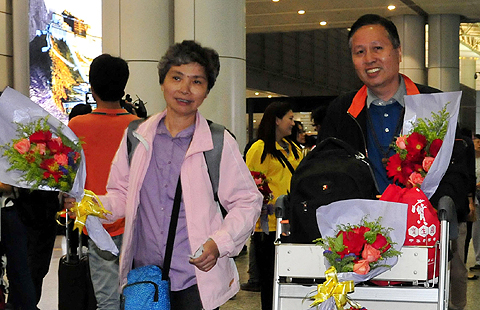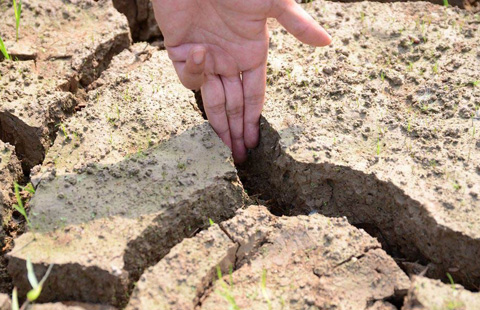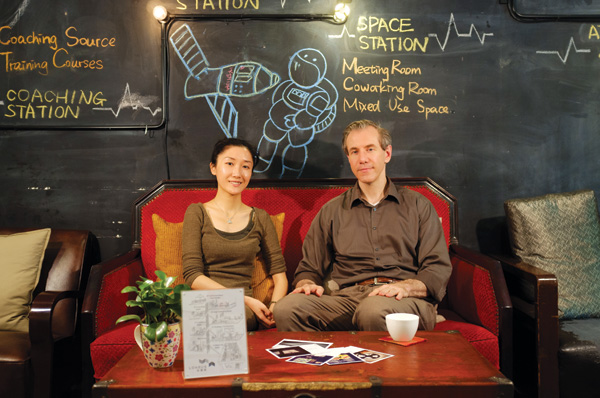City getting green makeover one inch at a time
Updated: 2015-04-03 11:31
By Zhang Kun in Shanghai(China Daily USA)
|
||||||||
A social entrepreneur from Vancouver who has made Shanghai his home for the last decade hopes to promote broader use of sustainable technologies using LOHAUS Shanghai as a platform.
Canada's Jason Inch is on a green crusade to save Shanghai from its own excesses.
He founded LOHAUS, Shanghai's loft of health and urban sustainability, in 2013 by taking a six-storey house in the former French Concession and refurbishing the 1930s building with solar panels, green displays and other upgrades.
Now the social entrepreneur wants Chinese people to adopt more of the sustainable technologies the country produces, rather than just export them overseas for profit.
"We believe China is a leader in sustainable technologies," the Vancouver native said at the recent book launch of LOHAUS in Chinese, his 235-page manifesto that includes chapters on low-carbon buildings, smart cities and even 3D printing.
"China is the top producer of many of the world's sustainable technologies: wind energy, solar energy, and technologies like LED light bulbs. All of these are produced here in China, but we believe they are not used enough."
The book, which Inch penned in English to reach a wider audience in and out of China, can be purchased on Amazon and Kindle. It is available in 13 countries including the Netherlands, Japan and India.
Inch, together with his Shanghainese business partner Andrea Liu, established LOHAUS as a social enterprise. It channels its revenue into spreading the message of sustainability. They earn money from renting office space, hosting conferences and other events.
It is one of the first buildings in Shanghai to have solar panels installed. Any excess energy is sold to the local electricity grid and the profits put to good use.

 International rescue teams head to quake-hit Nepal
International rescue teams head to quake-hit Nepal
 World's deadliest earthquakes since 1900s
World's deadliest earthquakes since 1900s
 Rescuers deliver relief supplies on foot
Rescuers deliver relief supplies on foot
 China brings trapped nationals home from quake-hit Nepal
China brings trapped nationals home from quake-hit Nepal
 Severe drought hits Southwest China
Severe drought hits Southwest China
 History razed in Nepal earthquake
History razed in Nepal earthquake
 'Chi-pao teachers' found in Guangdong
'Chi-pao teachers' found in Guangdong
 Tourists evacuated from Nepal quake area arrive in Kunming
Tourists evacuated from Nepal quake area arrive in Kunming
Most Viewed
Editor's Picks

|

|

|

|

|

|
Today's Top News
Chinese, Koreans seek Japan apology
China rescue team starts work
Three US citizens among dead in avalanche after Nepal quake
Chinese rally across US to support NYC police officer under indictment
New publication will focus on China's energy industry
Abe's US trip: sense or sensibility?
China to overtake US in mobile gaming market
Nearly 2,500 confirmed dead in Nepal quake
US Weekly

|

|







